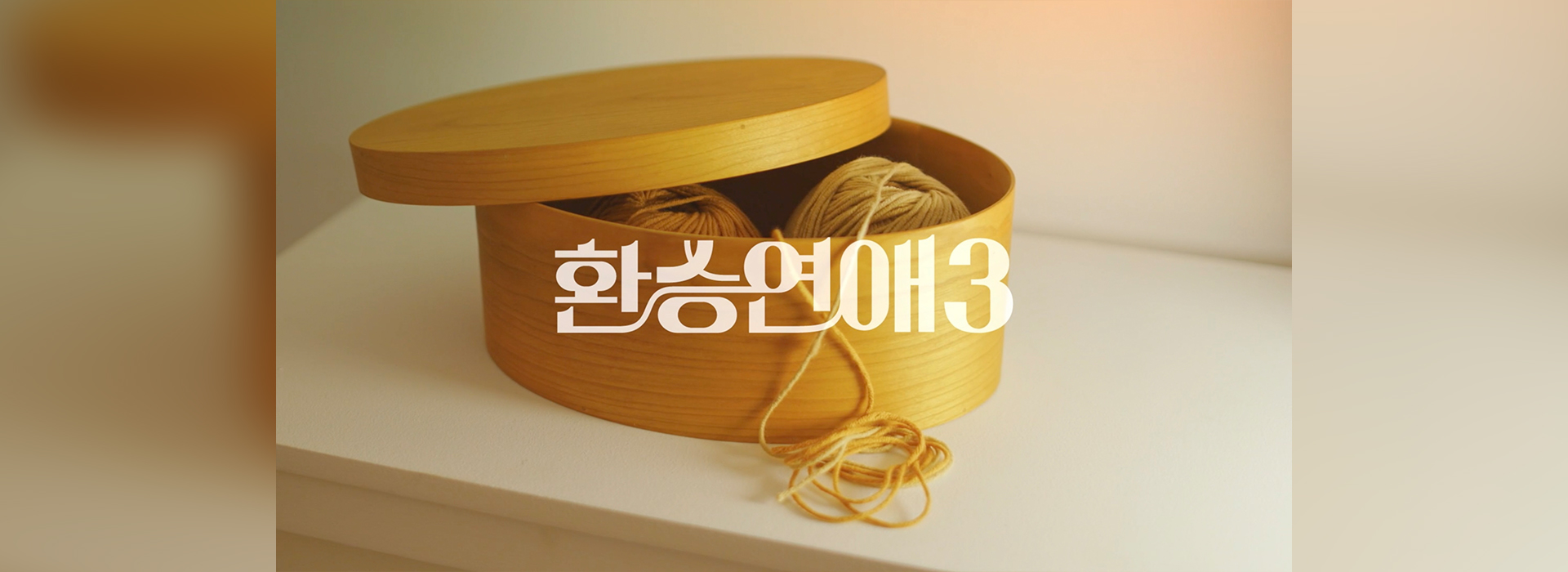
EXchange Season 3 (TVING Original)
Lee Heewon: “Will we become the sun? Or will we suck?” The original soundtrack entitled “SUN OR SUCK” accompanied the EXchange series since its first season, and the lyrics still resonate with the latest offerings. EXchange is a dating reality show that features ex-couples living together in one house, looking back on their failed relationships, and meeting new people in an attempt to find love. Before the participants move into the house, they are each given a ball of yarn that symbolizes their relationship with their ex and a pair of scissors. They can choose to continue with their former relationship if they think it was the sun that illuminated them, or to cut it off if it “sucked” and hurt each other. HyeWon, who is one of the participants, boldly cut the yarn of their relationship, but her heart faltered the moment she saw her ex again. She said, “My love, my hate - I’m not done processing any of it.” While Dongjin said that he wanted his ex to meet someone new, he found himself turning green with envy when she actually did, and looked happy, too. Exchange shows us the participants struggling to control their own thoughts and emotions. The duration of the relationship and the reasons for their breakup all differ from one ex-couple to another. In some cases, a simple apology could've prevented the breakup. One couple had been together for 13 years, starting from their teens up to their 30s. But the participants who used to love each other with all their hearts waver when they start to feel the excitement of a new budding relationship. After all, Kim Ye-won, who is one of the panelists, said that “The opposite of “I love you” is “I loved you”.” One participant stubbornly chose their ex over and over again, despite receiving the notorious “Your ex did not choose you” text repeatedly, while another didn’t send their ex a single text, determined to move on. After all the crossed texts and choices, who will they end up with?
Jasmine (Spotify Playlist)
Seo Seongdeok (Music Critic): K-pop is one of the rarer genres that was born outside the Anglosphere, entered the global pop music market, and secured a significant share of it. It hasn’t stopped at being a short-lived fad but has started to gain a steady stream of recognition from the mainstream. However, Asian artists who are based in the English-speaking world are still the minority. The market is eventful, however: Japanese-American Mitski rose to indie-rock icon status, and Filipino-American H.E.R won an Oscar. Michelle Zauner of Japanese Breakfast isn’t just a musician but also a best-selling author known for Crying in H Mart, a memoir that portrays her 1.5th generation immigrant background. Anderson .Paak, Rina Sawayama, Joji... The list goes on. Much more potential can be found if we broadened our gaze that largely focused on Korea, China, and Japan to include India, Southeast Asia, and the Pacific region. Jasmine on Spotify is a playlist that diligently follows artists from these parts of the world. The recent collab between Laufey and Beabadoobe is high up on the list. Prolific songwriter, producer, and DJ Gloria Kim frequents the roster. Vietnamese-American thuy is a permanent fixture when following American R&B. Indian dhruv’s debut song went viral on TikTok. This makes us take a fresh look at K-pop artists like Jung Kook, Eric Nam, Jeon Somi as Asian artists. We aren’t interested in them just because they are Asian but because the Asian community has gained the purchasing power equivalent to their population and began to choose artists who they could relate to since the rise of social media and streaming services.
Plan 75
Jeong Seohui (Cinema Journalist): We take your life for you. Eligible for anyone 75 and older. No family consent or health certificate needed. “Preparation fund” of 100 thousand yen provided. 24-hour 1:1 care provided. Free of all charges including cremation and burial. Plan 75 is the title of the “genius” special measure for rejuvenating a hyper-aged society in an alternate Japanese society. Michi (Chieko Baisho) is 78 years old. She lives alone. She made a living as a cleaner at a hotel until one of her colleagues, who had been ill, collapsed while she worked. Michi was fired, though it was thinly veiled as early retirement shortly after the incident. A demolition notice was posted on her home. Finding a new job and home required Michi to put in more physical effort, skills, fitness, and initial funds than she can afford, but “Plan 75” only requires her resolution. “If only I could choose when to die.” This slogan defines death as the antonym for life, which is thrust upon individuals unwillingly. However, we commemorate the time when the heart of the deceased beat, and not their body. If the state advocates that life and death are separate, and if old age is treated as the shell from which the essence is removed, then this is my response: Nobody can intervene in their own beginning; therefore, nobody should be pushed to their end. Anyhow, I have no intent of romanticizing life as something that’s purely beautiful. Even grief feels tedious sometimes. With a mountain of knots that need untying before her, Michi lives because she is alive. Michi takes a deep breath and looks at the sunset. Breathing in and out does not physically allow any gap for building a basis for breathing. The aloof glow is indifferently brilliant.
Unauthorized reproduction and distribution prohibited.